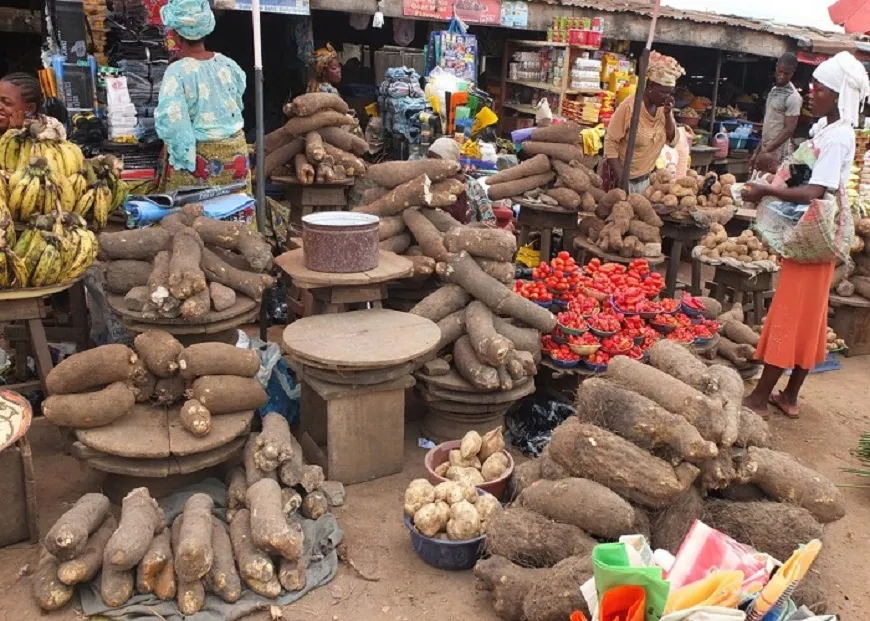Breaking News
International Trade: NESG, others task FG on food safety standards
“I am pleased to see good representation from relevant Ministries, Departments and Agencies of Government. I commend the work done so far in improving food safety and quality, and your presence here today is evidence that we are on the right path to sustainable economic transformation as a nation.

As food commodities from Nigeria face rejection in the international market, the Nigerian Economic Summit Group, NESG, and other stakeholders, Tuesday, tasked the Federal Government to put in place the highest food safety standards.
The Chief Executive Officer, CEO- Designate, NESG, Dr Tayo Aduloju, in an address of welcome, at the ‘Food and Feed Safety Expertise Coordination’ Workshop held in Abuja, said strengthening the regulatory frameworks and enhance the overall quality of food and feed in the country demands Nigeria’s commitment including pulling of collective expertise to actualize it.
Aduloju further stated that for the sector to thrive, effective regulatory, institutional and policy frameworks are needed to be put in place if the country desires to compete well in international trade.
The United States Department of Agriculture, USDA, in collaboration with the Nigerian Economic Summit Group, NESG, and Nigeria’s Federal Ministry of Health and Social Welfare, kicked off their third workshop on “Food and Feed Expertise Coordination” to launch a three-day Programme for high-level officials and technical experts from the Nigerian food industry and regulatory bodies to progress on the action plan drafted as the outcome of a previous workshop held in December 2022.
Newly created Technical Working Groups (TWGs) will provide expertise and leadership to drive effective communication, capacity-building and strategic partnerships among stakeholders as part of efforts to deliver a sustainable food safety and quality framework for implementation across Nigeria.
Jointly organised by the NESG, Federal Ministry of Health and Social Welfare, the Food and Agriculture Export Alliance (FAEA), the USDA, and the University of Missouri (MU) as part of the Africa Food Safety Initiative, the three-day food safety expertise workshop builds on last year’s Food and Feed Safety Transformation Dialogue – where stakeholders tasked government to pass the National Food Safety and Quality Bill into law given its importance to the health and wellbeing of Nigerians.
He said: “Nigeria’s commitment to upholding the highest food safety standards is paramount to our nation’s well-being and progress. By collaborating and pooling our collective expertise, we can strengthen regulatory frameworks and enhance the overall quality of food and feed in our country.
“Nigeria has over 70 million hectares of agricultural land, a massive potential for economic growth and development. However, for the sector to thrive, we must have effective regulatory, institutional and policy frameworks.
“Frameworks that address the gaps in food and feed safety systems will not only improve the well-being of citizens but also impact Nigeria’s position in international trade. To benefit effectively from the AFCTA, reforming food and feed safety systems in Nigeria is inevitable.
“As we navigate an ever-evolving global landscape, the importance of efficient food and feed safety systems cannot be overemphasized.
“Our shared goal is to safeguard public health, guarantee the integrity of our agricultural produce, and ensure consumer confidence in the products that reach their tables.
“I am pleased to see good representation from relevant Ministries, Departments and Agencies of Government. I commend the work done so far in improving food safety and quality, and your presence here today is evidence that we are on the right path to sustainable economic transformation as a nation.
“There is still work to be done in the ecosystem, and today, I will again reiterate the importance of collaboration, coordination and cooperation to achieve our desired goals.
“Also, the Private sector plays a crucial role in the agricultural value chain, enhancing productivity, opening markets, and attracting investment.
“Their active involvement in Food and Feed safety dialogues of this nature will also improve food quality for consumption and trade.”
Dr. David Atuwo, (representing Dr Tunji Alausa, Minister of State for Health and Social Welfare), emphasised that citizens deserve access to nutritious, safe food that promotes wellbeing.
Atuwo said: “This event comes as the Ministry is about to validate the revised National Policy on Food Safety & Quality and its Implementation Plan, 2023 as well as the launching of the first National Integrated Guidelines for Foodborne Disease Surveillance and Response.
“All these steps are deliberate efforts put in place by the Ministry to ensure we attain the required National Health Security Status in Nigeria.
“The revised policy will look at new and emerging areas that will improve the regulatory, enforcement and data-gathering system to ensure it is more effective, efficient, and robust, while the guidelines will set the roadmap for the integrated surveillance of foodborne diseases and establish the protocols for the response to food safety emergencies in the country.
“This event has therefore come at an appropriate time to ensure the right capacity needed to transform the food safety system and structure are developed.”
According to President of FAEA, Kent Sission, “The Food and Agriculture Export Alliance (FAEA) is very honored to participate in and co-sponsor the ‘Food and Feed Safety Expertise Coordination Workshop’. This is an important next step for our organisation in collaborating with Nigerian Government agencies responsible for ensuring the safe production and consumption food and animal feed.
“This opportunity represents our second food and feed safety activity in Nigeria working side by side with the Nigerian Government, USDA, USAID, the University of Missouri and the Nigerian Economic Summit Group.
“We look forward to many more opportunities to work in this area with these partners over the next few years.”
Over the last decade, the Nigerian government has implemented important changes to increase food safety by examining and enhancing critical components of the national food safety control system.
Priority areas for continuing modernisation of the food safety regulatory system will be emphasised over the course of the preparation of the Food Safety and Quality Bill and later prioritised by the competent authorities during and following a workshop held in December 2022.




















